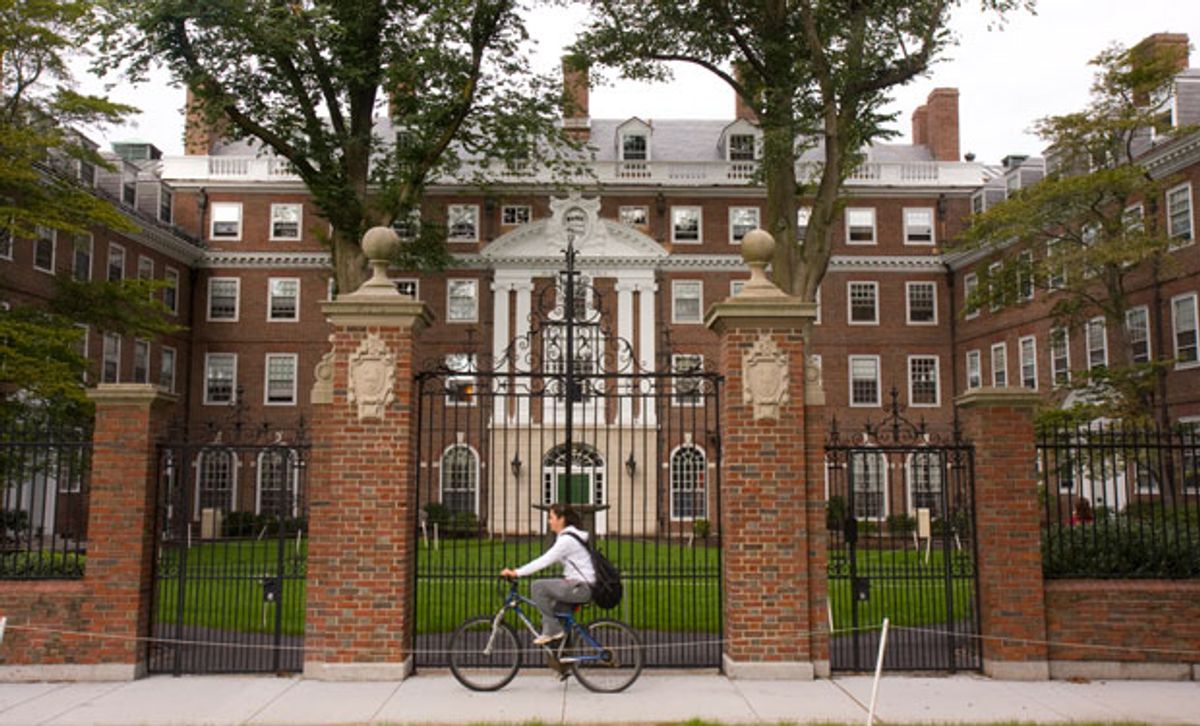At over 300 colleges in the past year, reports The New York Times Dealbook, students have initiated campaigns to divest from companies involved in the fossil fuel business. Their schools' endowments, they argue, shouldn't profit from practices that are contributing to global warming.
A few small schools, like Unity College in Maine, have already done as much. Harvard, in response to student pressure, hired a vice president of sustainable investing, but administrators warned students that divestment wouldn't have much of an effect on companies' practices. They argued that "the primary purpose of the endowment was to maximize returns, that divestiture wasn’t effective and that a better way to hold fossil fuel companies accountable would be through Harvard’s proxy votes as a shareholder." The situation is similar at other schools:
Administrators at Bowdoin and Swarthmore have cited...potential costs in responding to calls for divesting, and Middlebury and Vassar have decided not to divest. Middlebury cited the difficulty, costs and risks. Vassar’s president, Catharine Bond Hill, said students “have lots of proactive ways to engage policy makers” on climate change, and divesting themselves of certain stocks could hurt endowment returns without addressing the causes of climate change.
And the vast majority of colleges, according to one expert, don't consider social or environmental goals at all, but instead focus solely on returns.
Maybe what the arguments against divestment are missing, thought, is the ideological dissonance at play. Yes, colleges may be able to use the clout of their shares to urge companies toward more sustainable practices. But as the Times points out, many of Harvard's holdings are undisclosed, so students don't even know exactly what they're dealing with. The message that gets through is simply this: The institution that's preparing them for the future is being funded by practices that are endangering it.



Shares